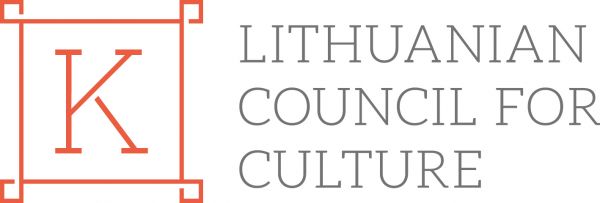Difference between revisions of "Shared Habitats"
| Line 7: | Line 7: | ||
The project has been initiated by Institutio Media in collaboration with Bauhaus University Weimar. It is supported by Nordic Culture Point and Council for Culture of Lithuania. | The project has been initiated by Institutio Media in collaboration with Bauhaus University Weimar. It is supported by Nordic Culture Point and Council for Culture of Lithuania. | ||
| − | In collaboration with: | + | ==In collaboration with:== |
* Bioartsociety, bioartsociety.fi (FI) | * Bioartsociety, bioartsociety.fi (FI) | ||
* i/o/lab Centre for Future Art (NO) | * i/o/lab Centre for Future Art (NO) | ||
| Line 21: | Line 21: | ||
* Synthetic Biology Organisation, sinbio.lt (LT) | * Synthetic Biology Organisation, sinbio.lt (LT) | ||
| − | Participants: | + | ==Participants:== |
* Erich Berger (AT/FI) | * Erich Berger (AT/FI) | ||
* Lina Rukeviciute (LT) | * Lina Rukeviciute (LT) | ||
| Line 41: | Line 41: | ||
| − | Supported by: | + | ==Supported by:== |
Latest revision as of 12:31, 12 February 2020
“Shared Habitats” – DIY-Practices for People, Machines, and Others seeks to develop contemporary artistic practices with an emphasis on the mutual exchange between actors in a shared environment. These actors include emerging and established artists, designers, educators, scientists, and thinkers from various disciplines, in environments spanning universities, laboratories, the white cube, the green cube, and cinematic spaces, as well as other locations, working with living organisms, objects and sites specific to the work being developed.
Following Jakob von Uexküll’s concept of living being’s experience based on individual Umwelt (1926), we will work on the idea of communication unfolding through interaction between art, information technologies, and bio-technologies in a shared environment. The proposed interaction will ensure our focus on bottom-up processes that support self-organizing activities and enable artists and lay people to learn from each other.
This project aims at doing things with others (DIWO) and learning from each other: we want to know how our colleagues understand life and how they use living matter in their practices. We also want to come up with a decent knowledge in a cross-disciplinary setting including arts, sciences, and engineering. Therefore we have scheduled three one-month-long residences for our participants: in Roskilde (DK), Stavanger (NO), and in rural Latvia. In between the residencies, we will have a number of pop up workshops, seminars, a festival and an exhibition for exchanging up to date discourses in arts and politics.
The project has been initiated by Institutio Media in collaboration with Bauhaus University Weimar. It is supported by Nordic Culture Point and Council for Culture of Lithuania.
In collaboration with:
- Bioartsociety, bioartsociety.fi (FI)
- i/o/lab Centre for Future Art (NO)
- BioFabLab at Roskilde University (DK)
- Institutio media, o-o.lt (LT)
- International Hackteria Society and Global Hackteria Network, Hackteria.org (CH)
- Department of Design og Kommunikation of the University of Southern Denmark, sdu.dk (DK)
- Media Environments Chair of the Bauhaus University Weimar, uni- weimar.de (DE)
- The Centre for new media culture in Riga, rixc.org (LV)
- Piksel Festival for Electronic Art and Free Technologies, piksel.no (NO) 10. Art Laboratory Berlin (DE)
- International Hackteria Society and Global Hackteria Network, Hackteria.org (CH)
- Technarium hackerspace, technariumas.lt (LT)
- Synthetic Biology Organisation, sinbio.lt (LT)
Participants:
- Erich Berger (AT/FI)
- Lina Rukeviciute (LT)
- Hege Tapio (NO)
- Martin Malthe Borch (DK)
- Danielle Wilde (AU/DK)
- Mindaugas Gapsevicius (LT/DE)
- Kristina Lindström (SE)
- Asa Stahl (SE)
- Rasa Smite (LV)
- Maite Cajaraville (ES/NO)
- Laura Beloff (DK/FI)
- Marc Dusseiller (CH)
- Ursula Damm (DE)
- Christian de Lutz (DE)
- Julian Cholet (DE)
- Jan Glöckner (DE)
- Gisle Frøysland (NO)
Supported by:

